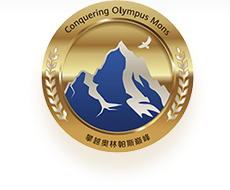Enterprise products, solutions & services
As a new factor of production, data has become a basic strategic resource in today's digital economy. However, explosive data growth and innovative data applications place higher requirements on data infrastructure. Sufficient storage capacity, premium usability, higher security, and better energy efficiency are now key priorities for industry, academia, and research organizations. In addition to ever-changing requirements for IT architecture, how to build data infrastructure with maximum energy efficiency is a major challenge for the industry.
Building a technological ecosystem, especially in the field of basic technology breakthroughs, requires the collaboration of all parties. That's why Huawei established the annual OlympusMons Awards in 2019 to lead the global research of data storage basic theories, break through key technical problems, accelerate the industrialization of scientific research achievements, and achieve industry-academia-research win-win collaboration.
Learn More With the emergence and development of new non-volatile media and high-speed network protocols, further research needs to be done on storage architecture, media application, and storage media to build a storage system that delivers ultimate per-bit cost efficiency.
To handle the diverse range of devices and new application workloads in data centers, high-speed data processing requirements, and new trends in data resilience, research needs to be done into technologies like data enablement and governance for new scenarios such as AI, data resilience and high reliability. This will enable us to build data enablement and resilience technologies for emerging services.
Learn MoreThe 2024 Global Data Storage Expert Forum announced the shortlist for the 2023 OlympusMons awards. The OlympusMons Award was presented to Professor Torsten Hoefler and his team from ETH Zurich, and to Professor Guo Minyi and his team from Shanghai Jiao Tong University.
The OlympusMons Pioneer Award was awarded to four teams: Professor You Yang (National University of Singapore), Professor John Kim (Korea Advanced Institute of Science & Technology), Mr. Yang Tong (Peking University), and Mr. Wang Ying (Institute of Computing Technology of the Chinese Academy of Sciences). The winning teams are determined by a review committee, who evaluated all entries based on standards of innovation, advancement, generality, and feasibility.
























As we move towards the intelligent era, we must cross the data peak.
OlympusMons represents Huawei Storage's unremitting pursuit and exploration on the road to data peaks.
The integration of industry, education, and research opens the door for innovation in data infrastructure.